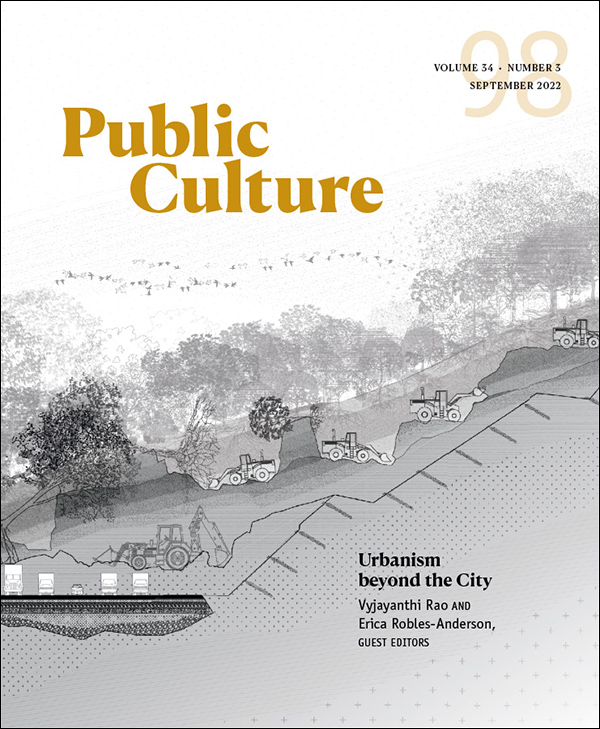
Now is a great time to save on recent special issues from our many journals! Use coupon code MAY50 through May 24th to save 50% on all in-stock and pre-order books and journal issues.
Indigenous Feminisms Across the World, Part 1
An issue of: Meridians
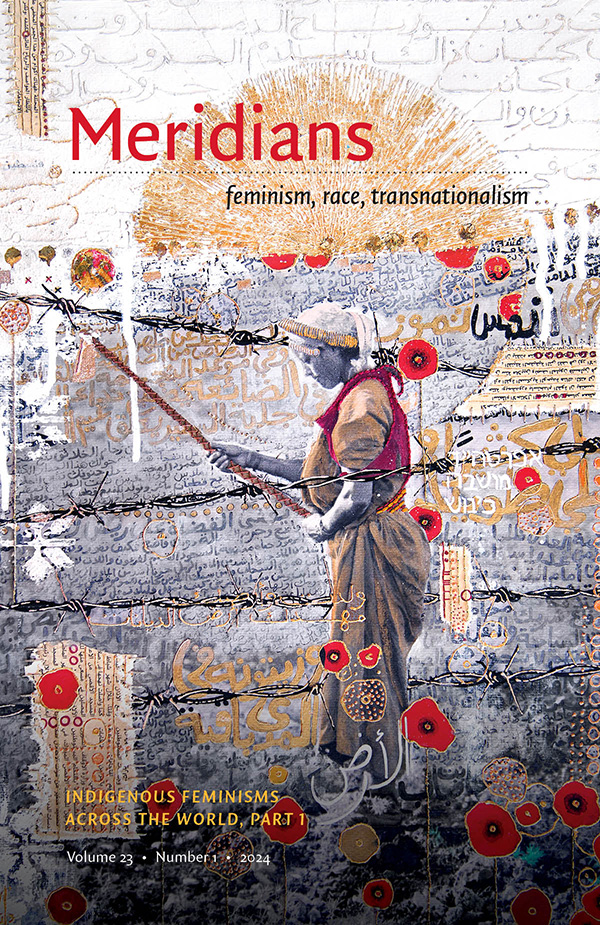
Rooted in activism, creative works, and epistemic innovation within and across hemispheric Indigenous politics, economies, histories, and peoples, the articles in this special issue expose, challenge, and resist contemporary (i.e., settler) colonial realities. Keeping with Meridians‘ mission, the contributors explore forms and meanings of resistance and activist strategies within contemporary feminisms.
Issue Editor: Basuli Deb
The Shape of Trans Yet to Come
An issue of: TSQ: Transgender Studies Quarterly
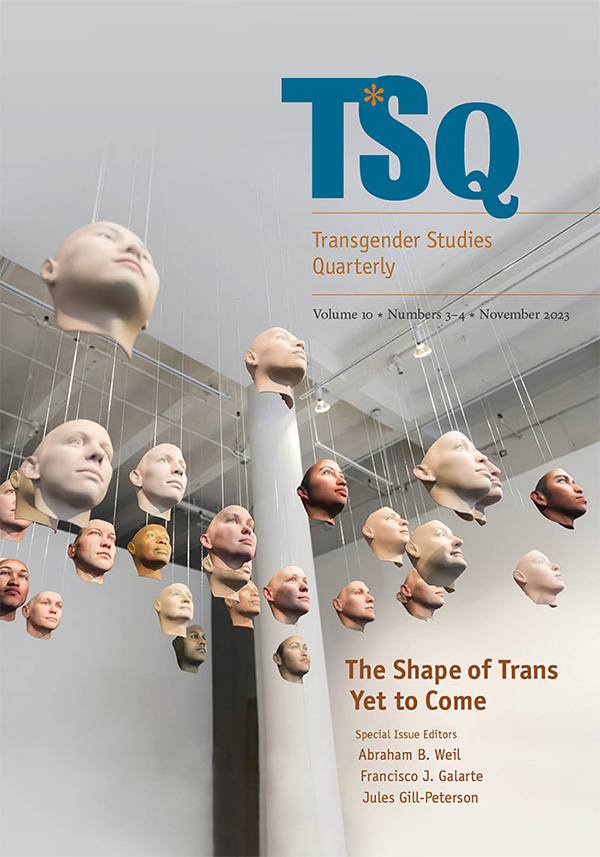
This special double issue celebrates the tenth anniversary of TSQ: Transgender Studies Quarterly by reflecting on the journey from the inaugural issue, “Postposttranssexual,” to now. In this current issue, “The Shape of Trans Yet to Come,” contributors meditate on the current state of the trans studies field and speculate on the directions and conversations in our future.
Issue Editors: Abe Weil, Francisco J. Galarte, Jules Gill-Peterson
Polarization, Politics, and Health in the United States
An issue of: Journal of Health Politics, Policy and Law
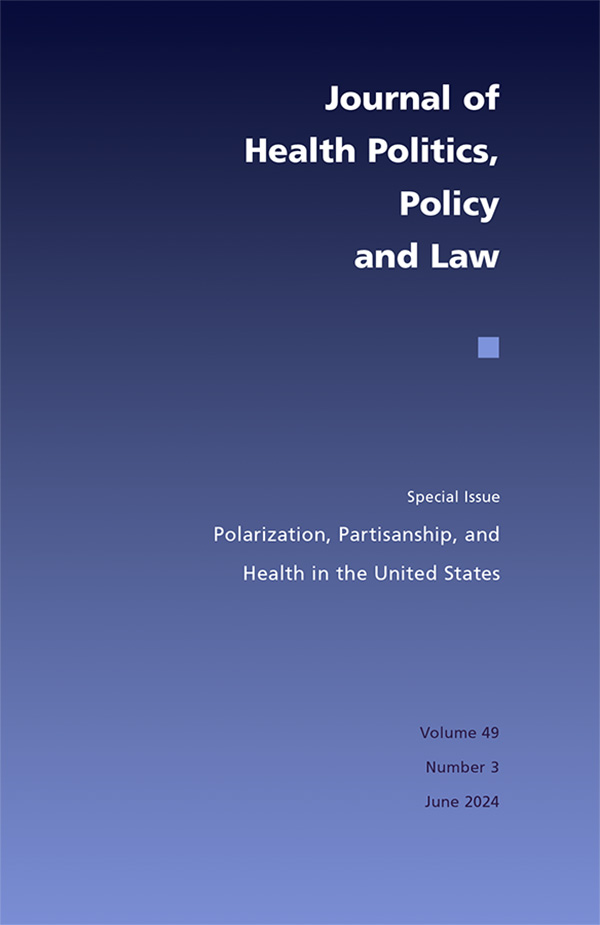
Contributors to this special issue examine how partisanship and polarization—which are at their highest in 150 years—shape health policy and politics in the United States. Highlighting examples such as the Affordable Care Act and the COVID-19 pandemic, the authors explore how political struggles over health care laws are fought on increasingly partisan laws; how partisan conflict reshapes a law’s implementation and post-enactment political trajectory; how polarization expands the scope of conflict to a wider set of institutions and issues; how partisanship shapes Americans’ health behaviors and, in some cases, impacts their health outcomes; and how partisanship can widen differences in state health policies.
Editor: Jonathan Oberlander
Reproductive Racial Capitalism
An issue of: History of the Present
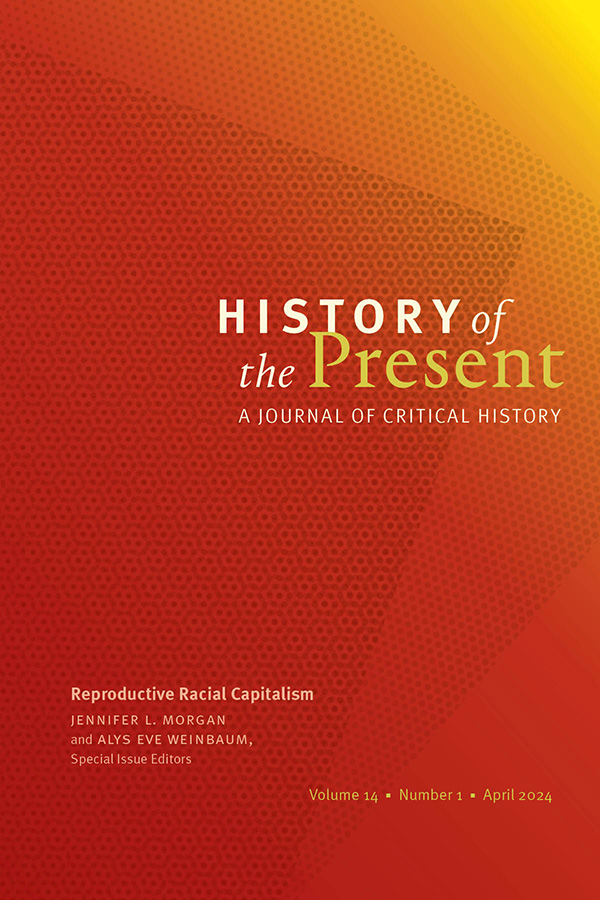
Contributors to this special issue explore the histories and afterlives of hereditary racial slavery and the radical refusals of its logics, arguing that contemporary racial capitalism is always already reproductive. The authors demonstrate that reproductive labor and the experiences of conception, gestation, parturition, and childrearing are the heart and engine of both slave racial capitalism and contemporary forms of reproductive racial capitalism. At the same time, the authors assert, reproductive labor and experiences are also the sites from which reproductive racial capitalism and its exploitative conditions have been resisted, are currently being challenged, and might still be altogether refused.
Issue Editors: Jennifer L. Morgan, Alys Eve Weinbaum
Labor and Science
An issue of: Labor
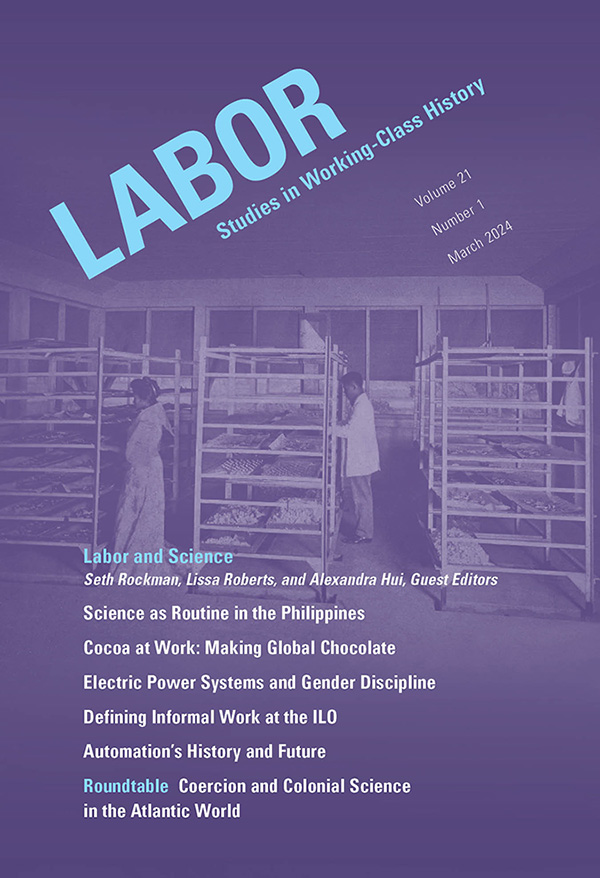
This special issue covers the intimate connections between labor history and the history of science, from the “labor” in laboratory to the “science” in scientific management. Given the pressing scholarly and political questions these two historical subfields share, contributors seek to approach scientific knowledge production as a variety of work—one effectively analyzed through the methodologies and questions of labor history.
Issue Editors: Seth Rockman, Lissa Roberts, Alexandra Hui
the good life in late-socialist asia: aspirations, politics, and possibilities
An issue of: positions
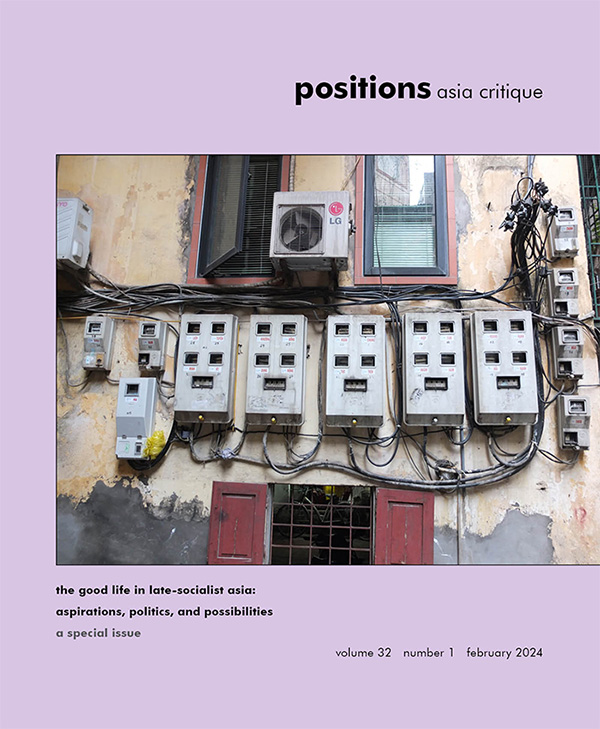
Contributors to this special issue examine the notion of “the good life” and its influence on late socialist social life through the perspectives of communities living amid political economic transformation across China, Laos, and Vietnam. The essays feature ethnographic analyses of diverse social domains—from pop culture, religion, and consumption to environmental discourses and philanthropic activities—to reveal how the contradictions of late socialism limit the possibilities of living well together and the moral agency of people negotiating seemingly incommensurable value frameworks and social orders.
Issue Editors: Minh T. N. Nguyen, Phill Wilcox, Jake Lin
Indigenous Responses to Disease: Ethnohistory inspired by COVID
An issue of: Ethnohistory
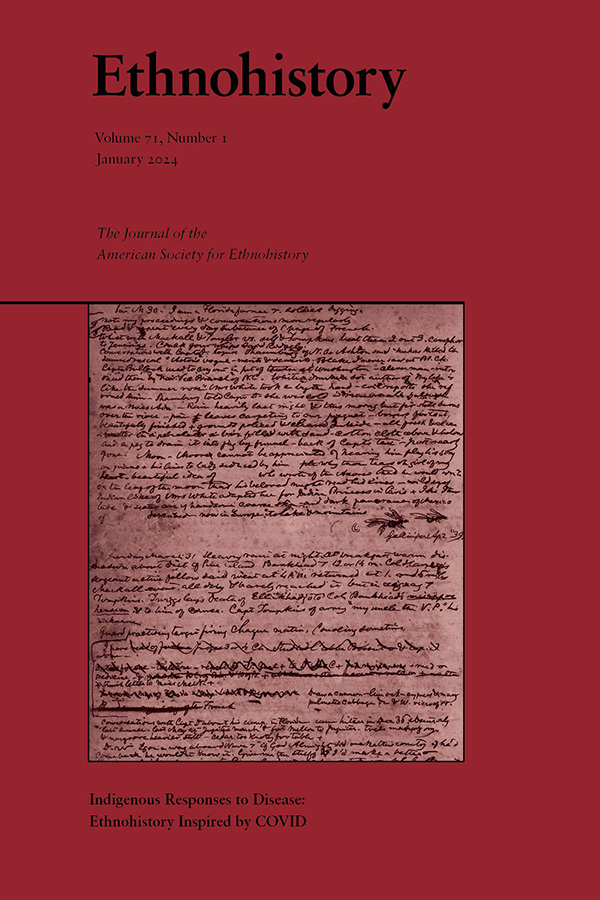
Contributors to this special issue explore how Indigenous peoples of the Americas experienced and responded to disease across time. Inspired by the global struggle with COVID-19, the authors reveal the transhistorical dimension of disease and its impact on the Americas.
Editors: Denise I. Bossy, Robert C. Schwaller
Crisis Theory
An issue of: South Atlantic Quarterly
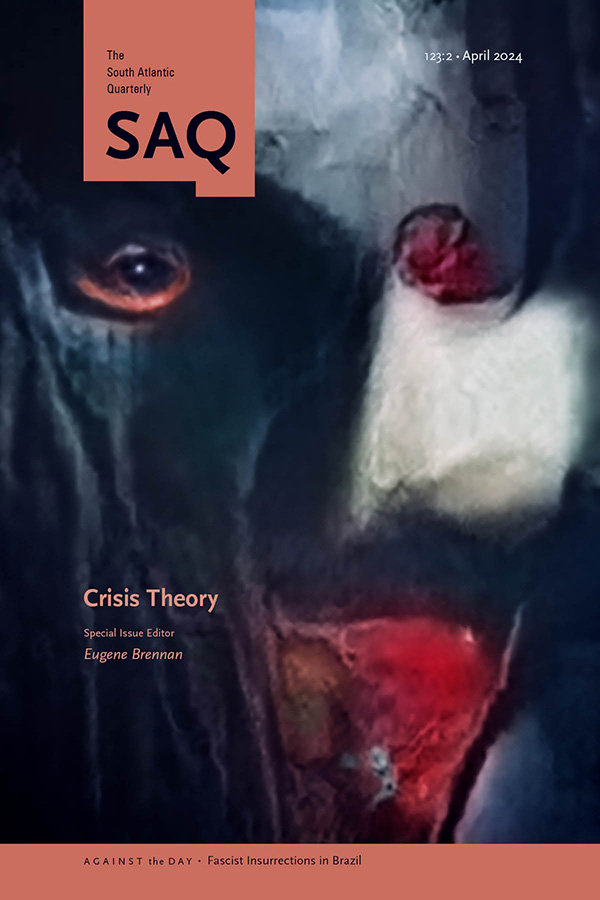
This special issue covers the challenges of theorizing the present through the notion of crisis. Analyzing different incidents of contemporary political upheaval to examine the various temporal forms constitutive of the present, the authors argue that temporalities of crisis must be understood not simply as punctual events but as longer and more complex durational rhythms exemplified by ongoing racial and colonial histories.
Issue Editor: Eugene Brennan
Visual Culture Issue
An issue of: New German Critique
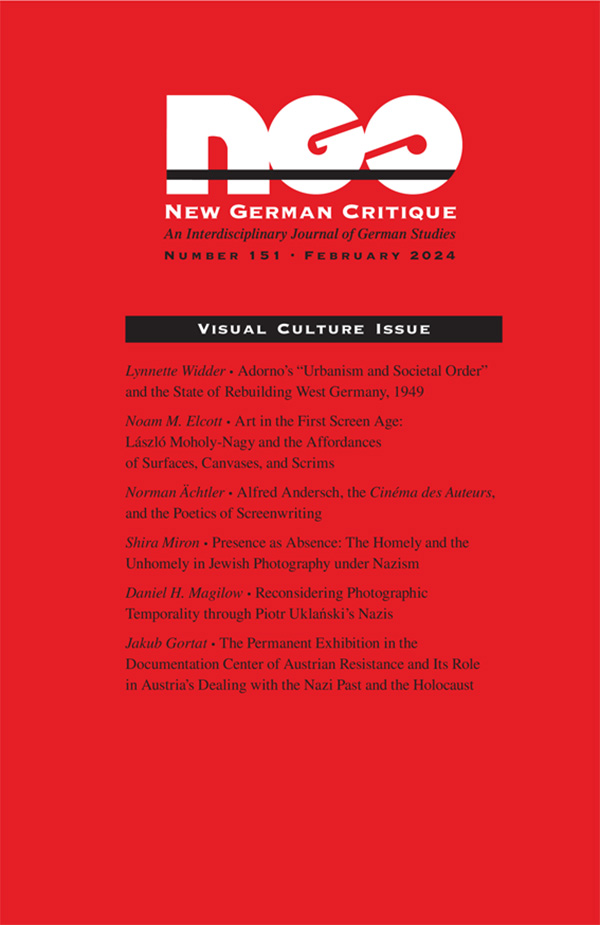
In this special issue, contributors explore the interface of screens, photography, film, and visual documentation in popular culture. Topics covered include an early media genealogy of screen culture in early twentieth-century Weimar; Adorno’s rare reflections on architecture and the possibility of a collective “good life” in postwar Germany; documentation and its shortcomings in Austrian attempts to memorialize the war; the uncanny photos of abandoned Jewish homes under Nazism; the culture industry’s ongoing fascination with Nazism; and the poetics of screenwriting among German authors in the postwar era.
Editor: NGC Editorial Collective
Feminists Confront State Violence
An issue of: Radical History Review
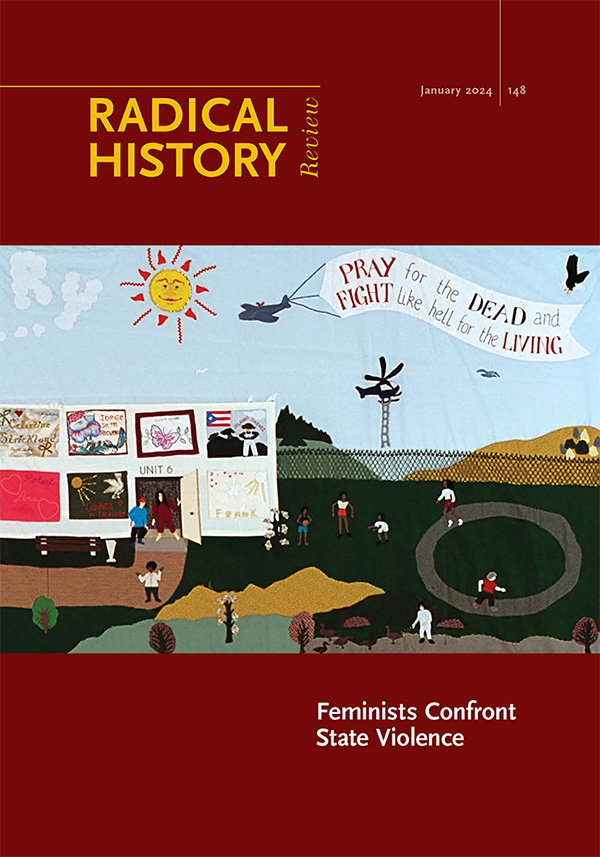
Contributors to this special issue examine the state’s capacity to affirm life given its structural investments in violence, paying specific attention to how activists theorize and devise strategies to win redress from extant institutions. The authors document the ways feminists have negotiated a fundamental contradiction, asking how and why one makes demands for the equitable distribution of care, safety, and life in a state that inequitably distributes violence, immiseration, and death. Altogether, the essays in this issue provide an archival tool kit of Black, abolitionist, anarchist, anticolonial, and anticapitalist feminist strategies to radically remake worlds inside this one.
Issue Editors: Anne Gray Fischer, Sara Matthiesen, Marisol LeBrón










